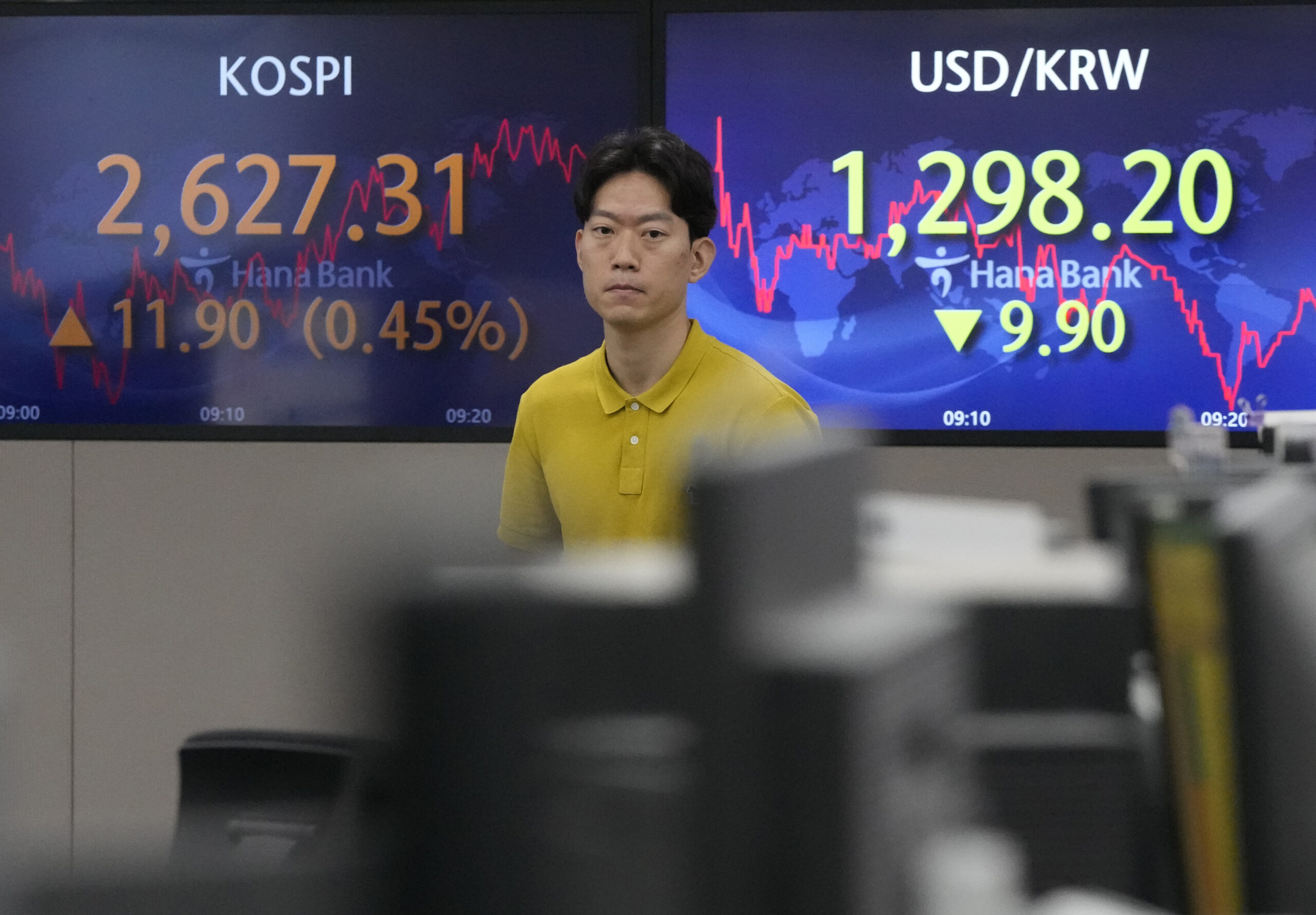BANGKOK (AP) – World shares were mixed on Wednesday after China reported trade data pointing to a further slowing of its recovery from the disruptions of the pandemic.
Germany’s DAX shed 0.3 per cent to 15,937.77 and the CAC 40 in Paris slipped 0.4 per cent to 7,183.35. London’s FTSE 100 was barely changed at 7,626.60.

The future for the S&P 500 was down 0.1 per cent while that for the Dow industrials lost 0.2 per cent. Oil prices advanced.
China reported its exports fell 7.5 per cent from a year earlier in May and imports were down 4.5 per cent, adding to signs of a slowing of its economic recovery
The decline in exports was the first year-on-year drop in in three months, with export volumes falling below their levels at the start of the year. “And with the worst yet to come for many developed economies, we think exports will decline further before bottoming out later this year,” Julian Evans-Pritchard of Capital Economics said in a commentary.
The Shanghai Composite index gained 0.1 per cent to 3,197.76, while the Hang Seng in Hong Kong gained 0.8 per cent to 19,252.00.
Tokyo’s Nikkei 225 index lost 1.8 per cent, the sharpest decline in 12 weeks, to 31,913.74. Analysts said investors were selling to lock in recent gains since prices have risen to their highest level since the early 1990s.
In Seoul, the Kospi was nearly unchanged at 2,615.60, while Australia’s S&P/ASX 200 edged 0.2 per cent lower to 7,118.00. Shares rose one per cent in Taiwan and fell 0.3 per cent in Bangkok.
On Tuesday, the S&P 500 rose 0.2 per cent, ending just 0.2 per cent away from finishing 20 per cent above where it was in mid-October. Investors have taken heart as a long-predicted recession has yet to hit. Also, excitement around artificial intelligence has helped a select group of stocks to soar.
The Dow Jones Industrial Average edged up by less than 0.1 per cent, while the Nasdaq composite rose 0.4 per cent, to 13,276.42.
Investors are watching to see which will happen first: a recession or inflation falling enough to get the Federal Reserve to start cutting interest rates, which have climbed so high they’ve hurt various parts of the economy.
Next week, the United States (US) government will publish its latest monthly updates on inflation, and the Federal Reserve will meet on interest-rate policy. The bet on Wall Street is that the Fed may hold off on hiking rates, which would be the first time that’s happened in more than a year, but could resume raising rates in July.
Some of Tuesday’s strongest action was in the cryptocurrency world after the Securities and Exchange Commission (SEC) charged Coinbase with operating its trading platform as an unregistered national securities exchange, broker and clearing agency.
Shares of its parent, Coinbase Global, tumbled 12.1 per cent
A day earlier, the SEC filed 13 charges against another huge crypto trading platform, Binance, and its founder. Binance said it had been in discussions to reach a negotiated settlement to resolve the SEC’s investigations.
The frenzy around AI has helped a handful of stocks soar to immense gains this year, including a 164.5 per cent surge in chipmaker Nvidia. That’s helped drive much of the S&P 500’s gains in 2023, but it’s also caused critics to question whether a bubble is forming.
Even though the S&P 500 is nearing a bull market, almost as many stocks within it are down this year as up as worries remain about falling corporate profits, still-high inflation and much higher interest rates than a year ago.
In other trading Wednesday, benchmark US crude oil recovered from earlier losses, gaining 43 cents to USD72.17 a barrel in electronic trading on the New York Mercantile Exchange. On Tuesday, it lost 41 cents to USD71.74 a barrel. Brent crude, the international standard, added 49 cents to USD76.78 a barrel.
Both were close to USD120 a year ago but have fallen amid worries about a faltering global economy’s need for fuel.
The US dollar bought JPY139.33, down from JPY139.66. The euro rose to USD1.0701 from USD1.0695.



















































